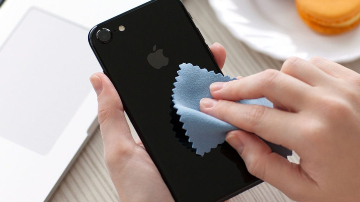In a surprising turn of events, Apple Inc. has decided to cease the production of its FineWoven iPhone cases and Apple Watch bands, which were introduced just last year with the iPhone 15 series and Apple Watch series 9. The decision comes after multiple complaints from users about the products’ durability and their tendency to attract dirt and scuffs, according to a recent report by 9To5Mac.
Launched as a sustainable alternative to leather accessories, the FineWoven accessories represented Apple’s commitment to environmentally friendly products. However, the lack of new color releases since their initial launch hinted at a potential slowdown in production, raising questions about the future of this accessory line.
Despite the end of FineWoven production, Apple is not expected to revert to leather products, which the company discontinued in September of the previous year. Instead, the tech giant is reportedly exploring other non-leather alternatives, such as Alcantara, which is already used in various luxury automotive and consumer electronics applications for its premium feel and durability.
A New Direction in Accessories
As Apple phases out the FineWoven line, industry insiders anticipate the debut of new accessories alongside the upcoming iPhone 16 series later this year. This shift not only reflects Apple's adaptive strategies in product development but also underscores its commitment to innovation and quality in consumer products.
Expanding Repair Options with Used Genuine Parts
In related news, Apple has announced significant expansions to its repair program, which will now include support for used parts. This initiative allows customers and independent repair providers to utilize used genuine Apple parts for repairs, ensuring that these components deliver the same functionality and security as those that come directly from the factory.
The new policy is set to begin later this year with iPhone 15 models and newer, covering essential parts such as screens, batteries, cameras, and biometric sensors used for Face ID or Touch ID. This move is seen as a step forward in Apple’s efforts to support sustainability and reduce electronic waste by extending the lifespan of its devices through official repair channels.
Implications for Consumers and the Industry
The discontinuation of the FineWoven line and the introduction of a new material for future accessories are likely to influence consumer choices and the competitive landscape. As Apple shifts towards more durable materials like Alcantara, it could set a new standard in the industry for premium, sustainable accessories.
Moreover, the expansion of repair options is expected to be well-received by consumers, who increasingly value sustainability and the ability to repair rather than replace their devices. This change not only promotes a more sustainable approach to consumer electronics but also aligns with global trends advocating for greater repairability and longevity of tech products.
Conclusion
Apple’s decision to discontinue FineWoven accessories marks the end of a brief era in its product lineup but also opens up new avenues for innovation in materials and product sustainability. As the company continues to adapt to consumer feedback and environmental responsibilities, its strategies in developing new materials and expanding repair options are likely to play a crucial role in shaping its future offerings and its reputation as a leader in the tech industry.

.webp)


.jpg)


